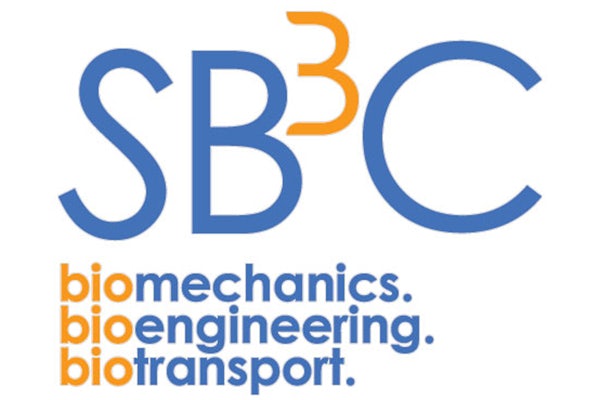Engineering students, alumni win paper, design awards at SB3C
Three students from the McKelvey School of Engineering received awards at the 2021 Summer Biomechanics, Bioengineering and Biotransport Conference (SB3C), hosted by the American Society of Mechanical Engineers (ASME)

Three students from the McKelvey School of Engineering won awards at the 2021 Summer Biomechanics, Bioengineering and Biotransport Conference (SB3C). The annual meeting, hosted in conjunction with the Bioengineering Division of the American Society of Mechanical Engineers (ASME), provides students with an opportunity to network among their peers and present their research in a casual, informal environment.
Alexandra Davis, a doctoral student in the Department of Biomedical Engineering, won first place in the master-level Student Paper Competition with her paper titled “Size-dependent solute diffusivity in synovial explants parallels solute transport following intra-articular delivery in vivo.” Davis is a student in the lab of Lori Setton, the Lucy & Stanley Lopata Distinguished Professor of Biomedical Engineering and department chair.
Chase Hartquist, who earned bachelor’s and master’s degrees in mechanical engineering in 2021, was named runner-up in the bachelor-level of the Student Paper Competition with his paper titled “Quantification of the Flexural Rigidity of Peripheral Arterial Endovascular Catheters and Sheaths.” Hartquist was a student in the lab of Guy Genin, the Harold and Kathleen Faught Professor of Mechanical Engineering.
Hartquist also was a member of the team that won second place in the meeting’s Student Design Competition. His was joined by Vinay Chandrasekaran, a rising senior majoring in computer science; Halle Lowe, who earned bachelor’s and master’s degrees in mechanical engineering in 2021; and Mohamed Zayed, MD, PhD, associate professor of surgery and of radiology at the School of Medicine. Chandrasekaran is a student in the labs of Zayed and William Buscher, assistant professor of genetics at the School of Medicine, and Lowe is a research engineer in Zayed’s lab.
The team’s winning design, “The MultiFlex Catheter: A Variable Stiffness Endovascular Catheter," is a neurovascular catheter that allows surgeons to easily increase the device’s stiffness. Commonly available devices used in surgeries to treat stroke and aneurysms are either too flexible or too rigid, which makes them difficult to navigate through the aortic arch. When inactivated , the MultiFlex Catheter can navigate through delicate blood vessels before becoming stiff, creating a stable highway through which physicians can deliver treatments.



